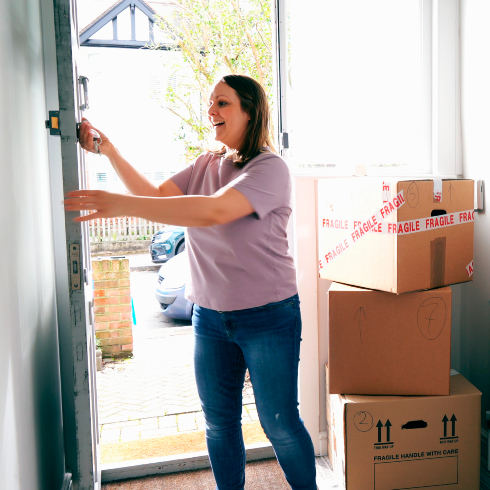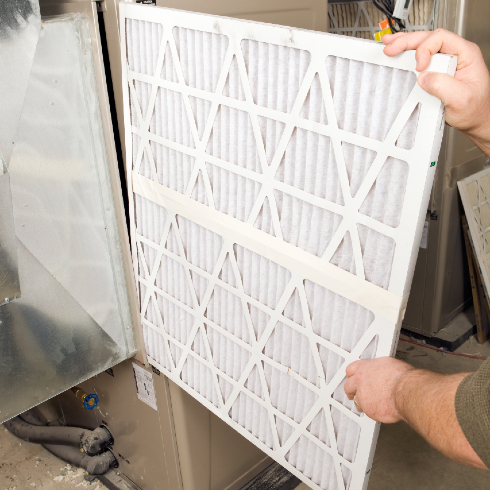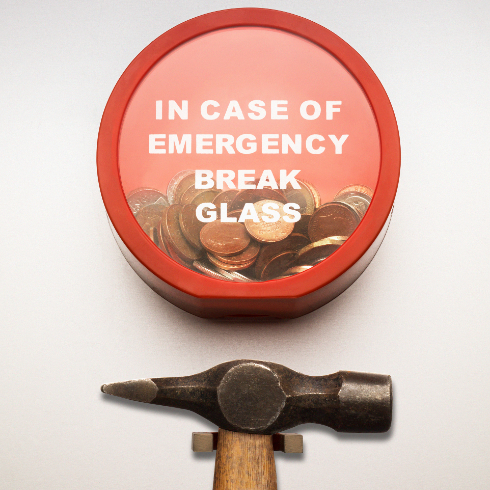Congratulations! You’ve purchased your new home! After all that effort, the only thing left is figuring out what to do with all those boxes, right? Not so fast! We’ve compiled a list of small but important tasks you should take care of once you’ve taken possession of your new home. And those boxes? Break them down and save them. You never know when you might need them.

Set Up Your Utilities
Establish new accounts or transfer your existing ones for utilities like water, gas, hydro, cable, phone and internet. Don’t forget to change the billing address on your cellphone(s).
Related: What Is Mortgage Payment Shock and Why Are Canadians Worried?

Get Insurance
Your home is likely your most significant investment, and you want to protect it. Get home insurance coverage for your property and the contents. Don’t forget to add liability coverage. Make sure you know what your policy covers and what it doesn’t. Don’t skimp in this area.

Change the Locks
When your real estate agent hands over the keys to your new house, take that as a reminder to change all the locks on exterior doors, including the garage and shed. You never know how many copies of the existing keys may be floating around, and the cost of changing locks is well worth the increased security.
Related: 10 Things Every New Homeowner Should Do Within the First Year

Update Your Address
Update your address with your bank, service providers, government agencies, and, of course, your friends. You can set up forwarding from your old address through the post office for a period of time, but it’s also a good idea to give your address to the new residents at your old place — so if anything slips through, they can let you know.

Double Check Your Mortgage
You might think you’re all set now that you’re a homeowner. But you should review your mortgage with an advisor to ensure your mortgage and the rate still work for you.

Make a Home Maintenance Plan
New home, new chores! Instead of making a long paper list of household tasks and maintenance routines, create an electronic calendar that automatically sends you notifications. You can break things down to weekly, monthly, seasonal and yearly. Examples include: changing the furnace filter, checking for leaks under sinks, cleaning drains, changing smoke alarm batteries, etc. A little preventative maintenance will go a long way to saving you from expensive repairs.

Get to Know Your Neighbours
Building connections with your neighbours and engaging in local resident groups can foster a strong sense of community. Some neighbourhoods also have online groups on Facebook and other platforms, and even have Buy Nothing pages, where you can post items you no longer use, and seek items you need. Knowing your neighbours increases security as they tend to look out for one another.

Consider Renovations or Upgrades
Explore potential upgrades or renovations that can improve your new home and increase its value. If you decide to move forward, take the time to save up part or all of the cost rather than relying on credit.
Related: 10 Home Renovations With the Highest Return on Investment

Review Your Property Taxes
If you’re new to making property tax payments or have recently moved to a different jurisdiction, ensure you know the amount owing and due dates. Taking the time to check your eligibility for rebates or tax credits can result in valuable savings.
Related: Buying a House With Multiple Owners? 10 Things You’ll Want to Know

Create an Emergency Fund
You never know when something is going to go wrong. It could be a burst pipe in the middle of the night or some surprise maintenance you hadn’t budgeted for. Having an emergency fund to draw on will lessen the financial burden when something unexpected happens.
HGTV your inbox.
By clicking "SIGN UP” you agree to receive emails from HGTV and accept Corus' Terms of Use and Corus' Privacy Policy.




